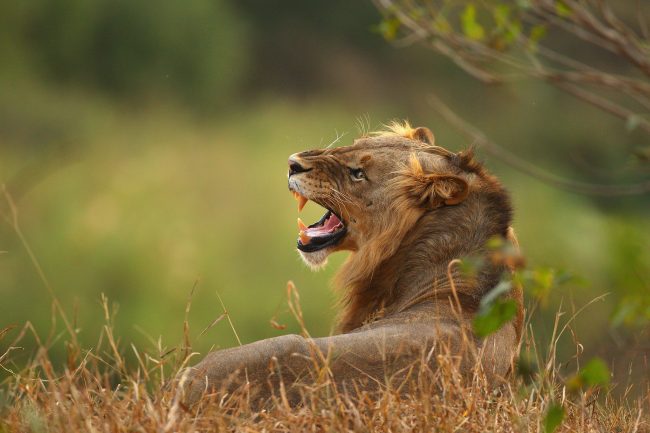South African authorities say they have recovered the remains of a suspected rhinoceros poacher who was believed to have been killed by an elephant before his body was devoured by lions.

The victim’s family say they were informed of his death by fellow members of a poaching gang that entered Kruger National Park in northeastern South Africa on Tuesday, South African National Parks said in a release.
READ MORE: Malaysia seizes rhino horns worth $12M in largest such haul
The family then called state police, who sent a search party to the area even as four other poachers from the group were arrested.
The man’s remains were found on Thursday — but not before a pride of lions got to them.
“Indications found at the scene suggested that a pride of lions had devoured the remains, leaving only a human skull and a pair of pants,” park authorities said.

The head of Kruger National Park expressed his condolences to the family of the deceased suspected poacher, saying that his death was a tragic reminder of the dangers of illegal entry into the park.
“Entering Kruger National Park illegally and on foot is not wise, it holds many dangers and this incident is evidence of that,” said the park’s managing executive Glenn Phillips.
“It is very sad to see the daughters of the deceased mourning the loss of their father — and worse still, only being able to recover very little of his remains.”
The four arrested individuals will appear in court in due course, officials said.

South Africa is believed to have around 80 per cent of the world’s rhino population of over 20,000, making it an epicentre of the global poaching crisis.
Poachers killed 769 rhinos in South Africa in 2018, according to the country’s environmental affairs ministry. That figure represents a 25 per cent drop from 2017.
WATCH: Last northern white rhino male dies in Kenya

Rhinos are targeted by poachers for their horns, which fetch big money from black markets in countries like Vietnam, where they are prized for their purported ability to cure health ailments ranging from cancer to erectile dysfunction.
There’s no evidence that rhino horn, made of the same substance as human fingernails, actually holds any medicinal value.

Rhino horn is also bought and consumed as a symbol of wealth, according to the World Wildlife Fund.
There is an international ban on the trade in rhino horn.
— With files from Reuters
- Ontario First Nation declares state of emergency amid skyrocketing benzene levels
- ‘Sciatica was gone’: hospital performs robot-assisted spinal surgery in Canadian first
- Do Canadians have an appetite for electric vehicles? Experts are divided
- More financial institutes are offering crypto-services, survey shows




Comments